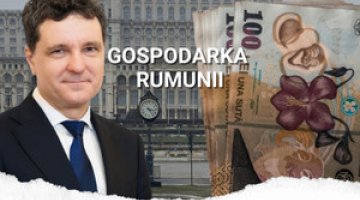Social Democrats riding the crest of a wave in Romania
Local elections were held in Romania five months ahead of the parliamentary election which is expected to put an end to the rule of the technocrat cabinet led by Dacian Ciolos. The Social Democratic Party (PSD) won the largest number of the seats in commune and province councils (almost 38%) and achieved a historic victory in Bucharest, where the public usually supports the political right. The centre-right National Liberal Party (PNL) scored the second best result on the scale of the country as a whole (nearly 32%). It did, however, sustain a total defeat in the capital, since it was outpaced by the local grouping led by Nicusor Dan, a local activist who criticises the Romanian political class as a whole. As usual, Transylvania voted for centre-right and Hungarian minority parties, while the regions in the south and east of the country backed the political left. The turnout was 48% (56% in the previous election).
Commentary
- The strong local structures and a hardcore electorate composed of pensioners, farmers and the underprivileged were the source of the Social Democrats’ success in the local election. Another factor is that the left wing electorate shows a striking tolerance for politicians involved in corruption scandals or irregularities in performing their official duties. The unfolding anti-corruption campaign is targeted mainly against politicians from PSD (for example, the former prime minister Victor Ponta has faced charges of tax evasion, and the politician who replaced him as party leader was sentenced to a one year suspended jail sentence for electoral fraud ). The party also benefited from Ponta’s resignation in November 2015 under pressure from protests provoked by the fatal fire at a Bucharest club. PSD, which ruled the country at that time, accepted the president’s proposal to form a technocrat cabinet led by Ciolos. Now the party is skilfully distancing itself from this and is putting the blame for mistakes in governing the country on the centre-right parties and President Klaus Iohannis.
- PNL’s poorer result is not only an effect of the errors made during the election campaign (for example, the party changed its candidate for mayor of Bucharest three times) but is above all a consequence of the fact that it has no charismatic local leaders or appealing offer to the voters. Strong internal disputes are also a heavy burden to the centre-right. Even though Iohannis’s victory in the presidential election towards the end of 2014 served as an impulse for the consolidation of the centre-right (two groupings merged under the common name PNL), this process is far from running smoothly. The president is reluctant to become engaged in any internal disputes and this also makes it difficult for the centre-right to win new voters.
- The good result achieved by Nicusor Dan in Bucharest proves that there is a demand for an anti-establishment party, especially given that various kinds of protests have rolled through Romania over the past few years: ecological, anti-corruption and those appealing for a replacement of the political elite. Nicusor Dan has already announced that a nationwide grouping will be formed and he stands a great chance of utilising the protest vote. In its campaign its main rival will be the centre-right, which is less credible when it comes to anti-corruption slogans. All this presents the Social Democrats with a greater opportunity to take power. Owing to its hard-core electorate and co-operation with smaller groupings (UNPR and ALDE – each with a 5% support level, according to the polls), it is the most likely winner of the autumn election.





